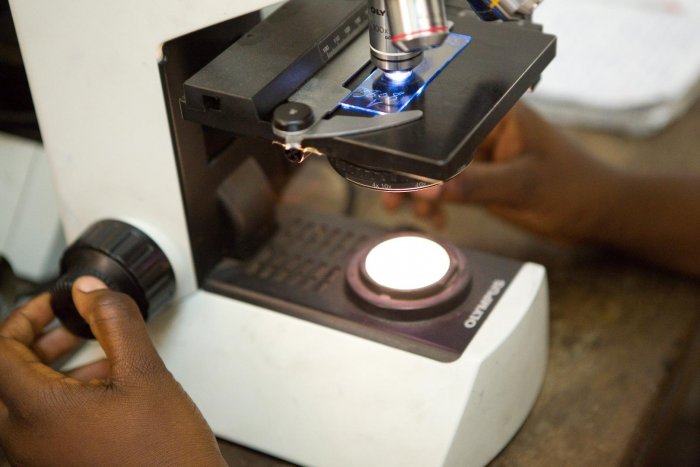Zimbabwe is now able to conduct genomic sequencing after the government recently purchased state of the art genomic sequencing machinery.
Genomic sequencing is a scientific process that enables scientists to detect, determine the nature and behaviour of pathogens by analysing virus samples taken from diagnosed patients, comparing them with other cases.
This genomic sequencing is done after a positive Covid-19 test (where saliva is taken from the back of the throat and nose), of which the swab used goes through several steps to separate the RNA molecules from mucus proteins so they can be captured, then converted into DNA that can be read.
Director of Laboratory Services in the Ministry of Health and Child Care, Dr Raiva Simbi, confirmed the country started conducting genomic sequencing locally in June.
“We now have the capacity to do genomic sequencing here at the National Microbiology Reference Laboratory (in Harare), which is the biggest laboratory in the country we have since done the genomic sequencing for the coronavirus – Sars-CoV-2,” he said in an interview with CITE.
Dr Raiva said from genomic sequencing, local scientists had discovered that the most circulating viruses in Zimbabwe currently were the Beta and Delta variants, first detected in South Africa and India respectively.
As of August 16, 2021, Zimbabwe has recorded 120 532 confirmed cases including 98 551 recoveries and 4 138 deaths.
“So far from our sequencing we discovered the ancestral virus first detected in Wuhan, China, then Beta, Alpha (the variant first detected in the United Kingdom) although it’s in low proportions then Delta where 90 percent of local cases are from that variant. We are still in the process of doing sequencing for other variants from different parts of the country,” the scientist noted.
As a virus passes from human to human, it mutates, while the genome of one Covid-19 patient compared with the person they caught it from will appear almost identical, but after the virus has been transmitted on to further people, differences between the strands of the virus they carry become more apparent.
Before Zimbabwe developed this network of sequencing, the country used to send Covid-19 samples to South Africa and the UK for genomic sequencing.
“South Africa was only the centre of excellence for genomic sequencing and SADC countries were sending samples to the KwaZulu-Natal Research Innovation and Sequencing Platform (KRISP). Countries under the Economic Community of West African States (ECOWAS) were sending their samples to Nigeria,” Dr Raiva said.
“We are now using those laboratories in South Africa and the UK only for quality assurance, where we send a small batch for comparison with our results in the country. Malawi has also started doing its own genomic sequencing and our local scientists are the ones who trained the Malawians.”
The scientists indicated that they were in the process of doing surveillance for the whole country to find all the different strains of viruses that are circulating and become a centre for excellence for genomic sequencing of communicable diseases
“In a nutshell we are able to do the sequencing not only for Covid-19 but for all other pathogens which might include HIV, food borne microbes like salmonella, vibrio cholerae and so forth. The pathogens we have in this part of the world are not common in Europe and America, you would realise that the type of pathogens like the vibrio cholerae are a different strain of HIV we have here and also other parasites,” he said.
As a result, the laboratory was developing a ‘huge’ bio bank to keep all these different pathogens for research.
“So this research will also help us in the development of drugs and also in the development of vaccines so we are really open to scientists all over the world come and learn with us with the different pathogens we have that we would have learnt from the genomic sequencing,” Dr Raiva explained.
Senior Laboratory Scientist, Kenneth Maeka, explained that the laboratory had two identical machines to complement the sequencing.
“One machine was availed through support from the Quadram Institute (in the UK) and the other from Africa CDC. Both machines are able to give us sequences within two days. You can run a maximum of 96 samples on each machine at the highest throughput though at this moment, as we are still settling in and trying to get comfortable with the process we are running 24 at a time and then 48 samples at a time,” he said in a notice flighted by the health ministry on YouTube.

